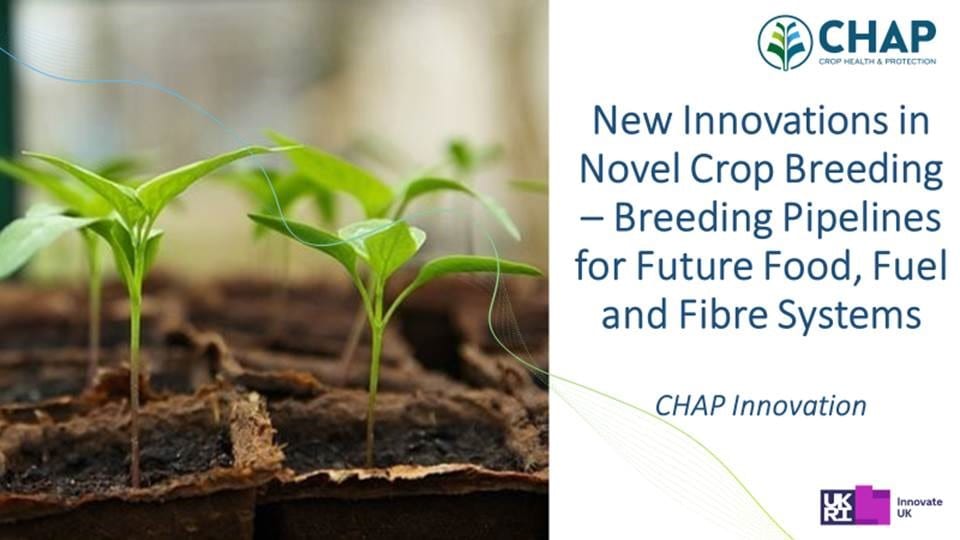Manipulating plants for human benefit has occurred for millennia, but the modern crop breeding era began in earnest in the 1960s and has become known as the ‘Green Revolution’. Today, technological advances have made the breeding process both quicker and more precise, while the growth of genetics and sequencing means that we now know so much more about how plants grow and the genes behind some of the key traits.
However, with the human population approaching 10 billion by 2050, based upon current consumption and waste statistics, an increase of 60-70% in food production is required (FAO 2018). This is set against a backdrop of global climate change that will affect how, what and where crops are grown, as well as the need to address issues such as malnutrition and food security. Plant breeding has an important part to play in tackling these problems, but further progress and innovation is needed to be truly effective.
Technological advancements in breeding have enabled a faster pipeline from first initial crosses between two parent lines to the final selection and marketing of plants with the desired sets of traits. This process can take 15 years or more, depending on the crop type, but newer techniques are coming through to reduce this timeframe. Examples of these that are making a difference today are Marker Assisted Selection, Next Generation Sequencing and Speed Breeding. As our knowledge and understanding grows, future possibilities open up for changing and improving the crop breeding sector, but what are the barriers to this and how do we overcome them? This was the topic of conversation for the first novel crop breeding workshop held on 3rd February 2021.
Quite a list of barriers arose from the discussions, including:
- inertia from the market,
- a disconnect between breeding and on-farm practice,
- IP restrictions in data and germplasm exchange,
- the rate at which pests and pathogens are overcoming resistance,
- access to tools and new technologies for smaller breeders, and
- limited collaboration between companies and between academia and industry.
But it’s not all doom and gloom. Many opportunities and examples of good practice around the development of future breeding pipelines were also shared, including a drive towards a more descriptive ‘list’ for growers, allowing sustainability metrics to play a greater role in varietal selection.
It was encouraging to recognise a transition in the UK general public towards being more interested in the sustainability and environmental impact of food production, which brings the challenge to the sector of how to respond to this and how to do so quickly while the impetus is still there. The analysis of both the barriers and opportunities provided stimulation for ideas to start problem solving.
This is a crucial part of the CHAP business-case development process, as a broad range of potential solutions are required and then explored, to make sure the most effective and wanted ideas could be turned into reality, and make a significant impact on the sector.
The meeting closed by gathering together and reviewing all of the stakeholder inputs and ideas, which will now be further developed by the CHAP Innovation Team to allow the process to continue. We are grateful for the time and contribution of the stakeholders involved and hope that a truly unique and disruptive solution will emerge from all the hard work carried out.
If you are interested in working with CHAP collaboratively on project concepts and development, please send us an email using the enquiries form at the bottom of our homepage.












